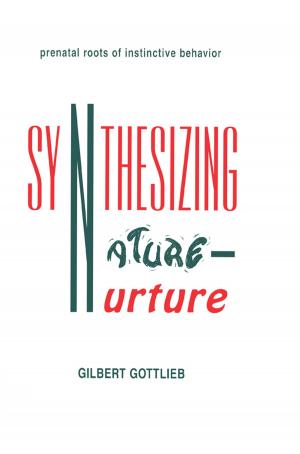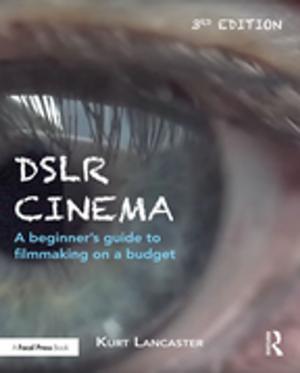| Author: | Annette Hill | ISBN: | 9781136177873 |
| Publisher: | Taylor and Francis | Publication: | November 13, 2014 |
| Imprint: | Routledge | Language: | English |
| Author: | Annette Hill |
| ISBN: | 9781136177873 |
| Publisher: | Taylor and Francis |
| Publication: | November 13, 2014 |
| Imprint: | Routledge |
| Language: | English |
Reality TV is popular entertainment. And yet a common way to start a conversation about it is ‘I wouldn’t want anyone to know this but…’ Why do people love and love to hate reality TV?
This book explores reality TV in all its forms - from competitive talent shows to reality soaps - examining a range of programmes from the mundane to those that revel in the spectacle of excess. Annette Hill’s research draws on interviews with television producers on the market of reality TV and audience research with over fifteen thousand participants during a fifteen year period.
Key themes in the book include the phenomenon of reality TV as a new kind of inter-generic space; the rise of reality entertainment formats and producer intervention; audiences, fans and anti-fans; the spectacle of reality and sports entertainment; and the ways real people and celebrities perform themselves in cross-media content.
Reality TV explores how this form of popular entertainment invites audiences to riff on reality, to debate and reject reality claims, making it ideal for students of media and cultural studies seeking a broader understanding of how media connects with trends in society and culture.
Reality TV is popular entertainment. And yet a common way to start a conversation about it is ‘I wouldn’t want anyone to know this but…’ Why do people love and love to hate reality TV?
This book explores reality TV in all its forms - from competitive talent shows to reality soaps - examining a range of programmes from the mundane to those that revel in the spectacle of excess. Annette Hill’s research draws on interviews with television producers on the market of reality TV and audience research with over fifteen thousand participants during a fifteen year period.
Key themes in the book include the phenomenon of reality TV as a new kind of inter-generic space; the rise of reality entertainment formats and producer intervention; audiences, fans and anti-fans; the spectacle of reality and sports entertainment; and the ways real people and celebrities perform themselves in cross-media content.
Reality TV explores how this form of popular entertainment invites audiences to riff on reality, to debate and reject reality claims, making it ideal for students of media and cultural studies seeking a broader understanding of how media connects with trends in society and culture.















